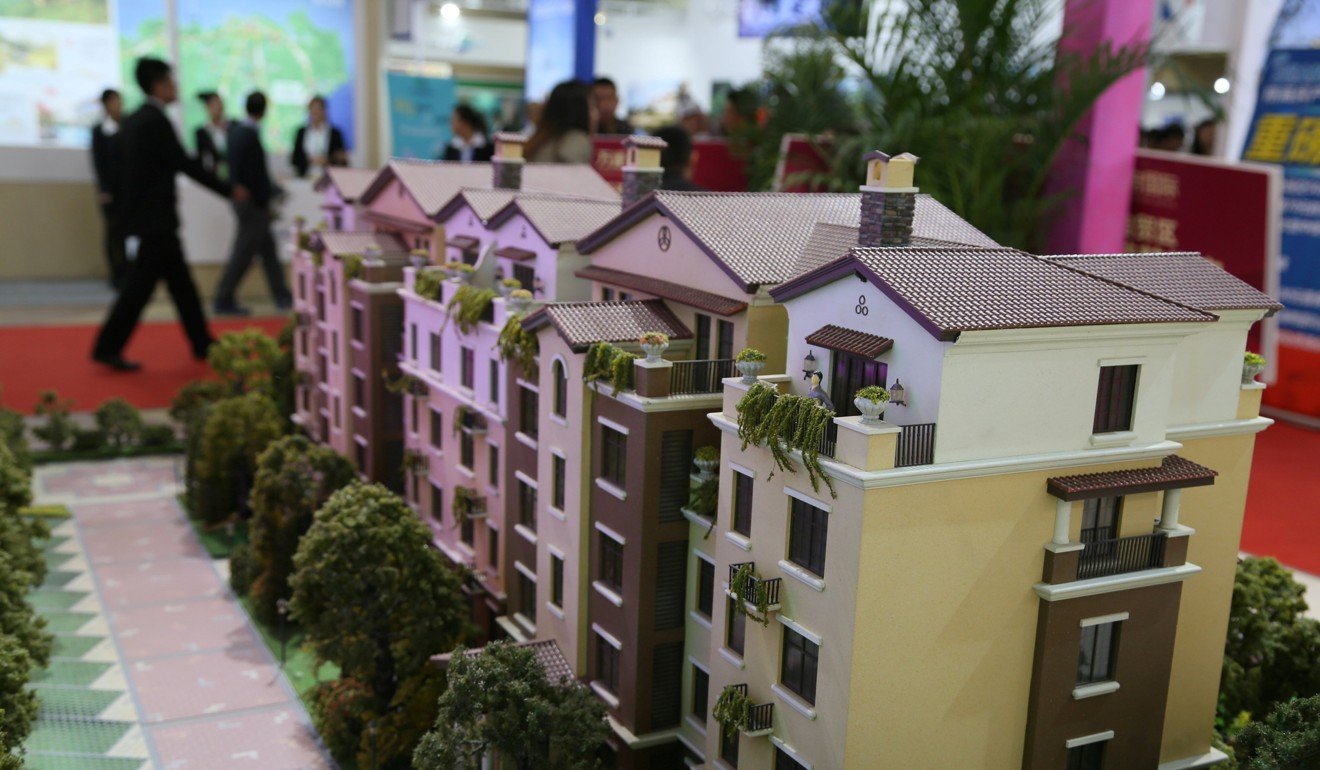
Property buyers hit a brick wall as Beijing tries to avert housing bubble
Buyers are being shut out of the market and sellers subject to lock-up periods as authorities struggle to keep a lid on prices
For almost two decades, China’s property market was a one-way bet. As urban residents made the move from state housing to privately owned flats from 1998, there were big profits to be made.
Before that year, when then premier Zhu Rongji privatised the market, most city dwellers lived in flats provided by their state employers.
Now, a drab two-bedroom flat in downtown Beijing or Shanghai could easily cost more than US$1 million, placing the cities among the world’s most expensive – along with Hong Kong, London and New York.
And that’s got the government worried. Fearing a meltdown similar to that in the United States in 2007 or Japan in 1991, the authorities have tightened their grip.
The result is the most fragmented and restricted property market the country has seen since it began the push towards private homeownership.
Many buyers have been shut out of the market in some 50 key cities through strict administrative orders and a renewed embrace of the hukou, the household registration system. In Beijing, for example, people from elsewhere must prove they have been employed in the city for 60 months if they want to buy a property there. Shanghai and Shenzhen have brought in similar policies to exclude non-local buyers.
Sellers, meanwhile, are being hit by lock-up periods in a growing list of cities. In Baoding, about 150km south of Beijing, a parcel of land was sold with the proviso that anyone who buys a flat built on the land must hold onto it for at least 10 years before they can sell. Dozens of other cities are imposing similar lock-up periods of two to five years.
“These measures freeze the market and prevent home prices from rising or falling,” said Zhao Yang, chief China economist at Nomura Securities.

The government is wary of property bubbles, particularly in its key cities. And as housing prices become increasingly unaffordable, especially for young people, resentment is building towards the government, which controls the land.
Perhaps more urgently for Beijing, it cannot allow housing prices to fall because it would impair trillions of yuan worth of bank assets – jeopardising local government revenue and angering middle-class homeowners whose most valuable assets are at stake.
Some 69 per cent of the growth in urban household wealth came from property in 2016, according to a nationwide survey of 36,000 households conducted by a think tank under Economic Daily.
“Beijing doesn’t want housing prices to decline for sure, given their importance to China’s economy,” said Zhao.
The creation of a housing market is seen as a key factor behind China’s economic take-off, along with its entry into the World Trade Organisation in 2001.
With land from local governments, the state banks poured in the cash to unleash a juggernaut of development that brought about the biggest urbanisation story in history.
There was no property tax – apart from two pilot schemes in Shanghai and Chongqing – and prices kept going up, creating fast profits for buyers. In a well-known case, the manager of a local bank in a coal-rich area forged the documents to buy some 41 apartments in Beijing.
Now those days are over. “Houses are for people to live in, not for people to speculate on,” President Xi Jinping told the country’s top annual economic policy meeting at the end of last year.
The controversial hukou system is key to this policy reaction. Essentially, a hukou confines education, health care and pensions to the place where a person is registered. Many researchers have called for the system, which divides urban from rural dwellers, to be abolished.
“When bubbles start accumulating, Beijing uses short-term administrative measures to prevent them from expanding,” Shen Jianguang, chief economist at Mizuho Securities Asia, wrote in a recent note.
The hope is that restricting buyers will take some heat out of the market, Shen said.
Beijing could also be trying to drive cash from the big, wealthy cities towards less developed areas, where there is plenty of housing but far fewer buyers.
Across the country, there are about 3,500 new districts being built – with enough housing to accommodate some 3.4 billion people, according to a recent government-backed survey.
Many of these could end up like Kangbashi in Ordos, Inner Mongolia, which has been dubbed the country’s biggest ghost city. It’s one of many such places scattered across China’s vast inland regions, where the economic prospects are gloomy and job opportunities limited.
But whether Beijing’s intervention will be enough to tame the market is still unclear.
“These measures have been effective in some ways to discourage people from buying property, but it only deals with some of the symptoms of high home prices,” said Jing Ulrich, managing director of JPMorgan Asia-Pacific. “The underlying cause of the problem has not yet been resolved.”
That underlying cause, Jing added, was a policy of excessive monetary easing to stimulate the economy, combined with a lack of investment options for mainlanders, who “have no other choice but to invest in real estate” – especially when the doors are shut for outbound investment.
“Then the property sector becomes a social problem, because if you own a property, great. If you don’t, you cannot afford to buy property. That creates a big social divide.”

